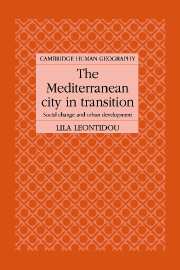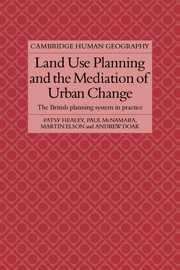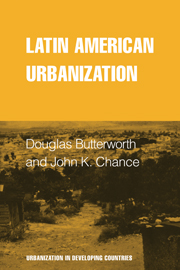The Mediterranean City in Transition
The transition from feudalism to capitalism has occurred in many different ways and the variety of forms and methods of this transition is particularly evident in Southern Europe. Focusing on Greater Athens between 1948 and 1981--the crucial period of transition--the author explores the role of social classes in urban development in the cities of Mediterranean Europe. Based on extensive research, the book presents for the first time a history of the Greek urban popular classes during the twentieth century. The author challenges urban growth models based on the Anglo-American experience and convincingly presents her own theoretical framework combining economic and ecological considerations with Gramsci's theories of culture, spontaneity, and informality.
Reviews & endorsements
"Using secondary sources for comparisons with other Mediterranean cities and archival studies for Athens, Leontidou has amassed considerable evidence--much of it presented in tables and maps--about how working-class migrants provided shelter for themselves in an unregulated building economy. Taken as an empirical account, Leontidou's book fills a gap in the literature." Josef W. Konvitz, Journal of Interdisciplinary History
Product details
March 2011Adobe eBook Reader
9780511828515
0 pages
0kg
This ISBN is for an eBook version which is distributed on our behalf by a third party.
Table of Contents
- List of figures
- List of tables
- Preface
- List of abbreviations
- Introduction
- 1. Spontaneous urban development: in search of a theory for the Mediterranean city
- 2. Cities of silence: Athens and Piraeus in the early twentieth century
- 3. The Greek 'economic miracle' and the hidden proletariat
- 4. The 'golden period' of spontaneous urban development, 1950–67
- 5. Industrial restructuring versus the cities
- 6. The end of spontaneity in urban development
- 7. Athens and the uniqueness of urban development in Mediterranean Europe
- References
- Index.






